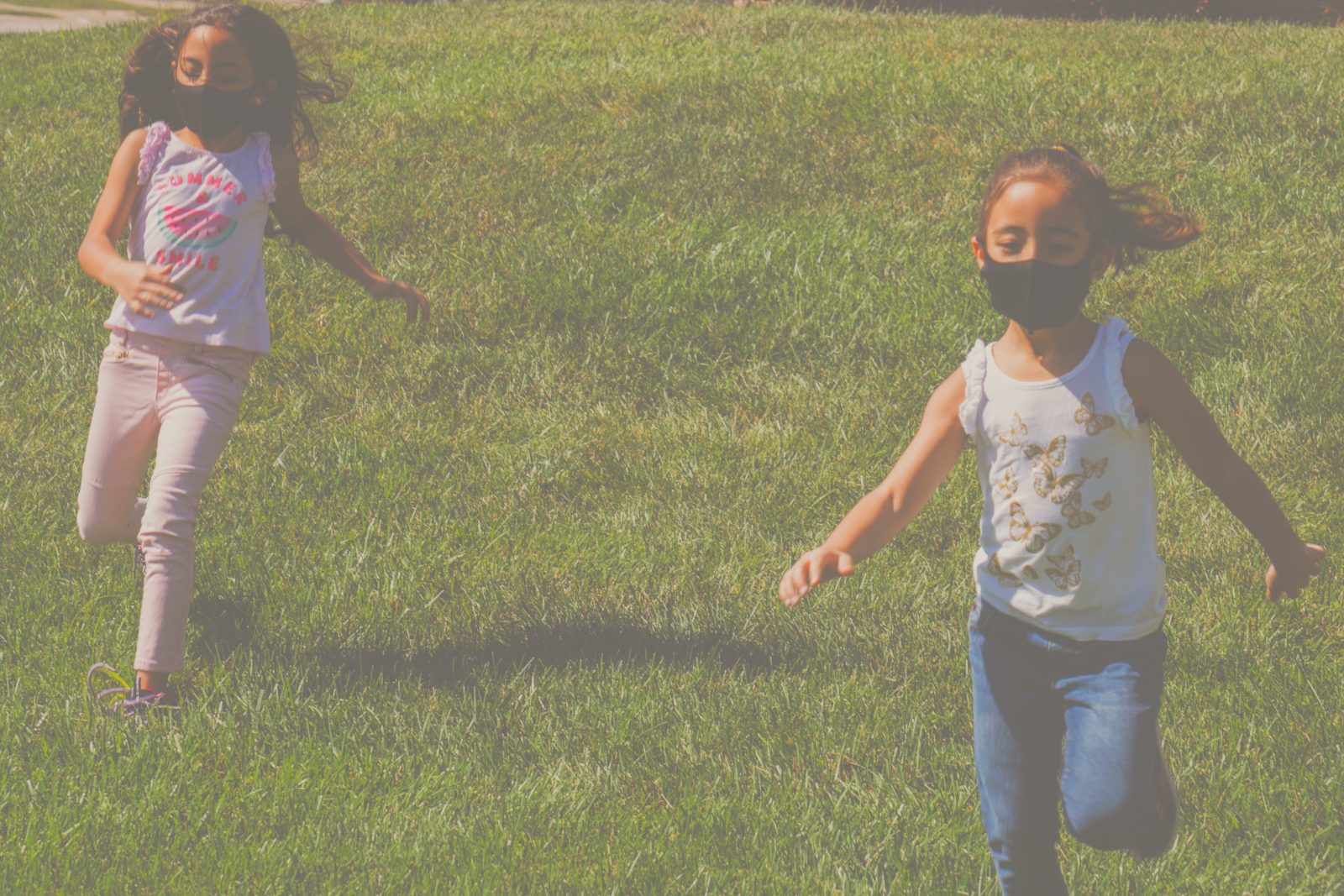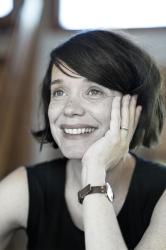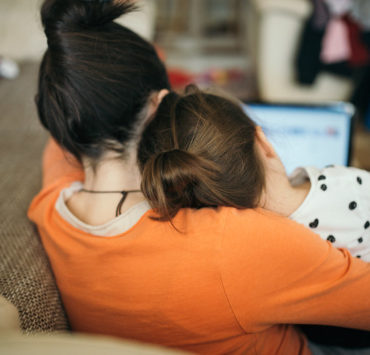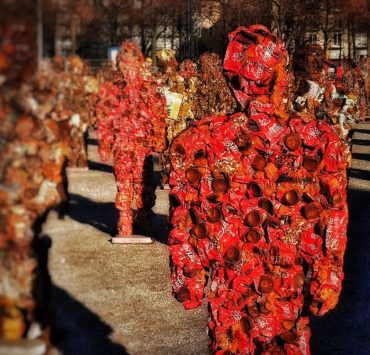
I remember every moment of my mother’s fury—rare, but terrifying—when she felt that her children were threatened. My mother was five foot zero, a hundred pounds, and usually dressed in paint-spattered shortalls. But, she could become large, loud, and scary to protect us. On the phone with the greedy insurance company that refused to cover my brother’s asthma treatments, at a meeting with the sexist principal who didn’t believe me when I said I’d been assaulted, on a floating dock in the Mattaponi River where an old man threatened us with a gun—she transformed into a hippie goddess of rage.
By the time I had my daughters, Beatrice and Harriet, I was more than a decade older than my mother was when she had me. You could say I was more mellow at 37 than my mother had been at 25. I’ve spent less time arguing with insurance companies and writing checks to “Shittybank” (which, she always pointed out, they cashed). My one gun-carrying neighbor is a friend of mine who mows the banks of the river spot where my girls and I play. Plus, I take an antidepressant. That helps, too.
For a while I thought my husband and I might never have children—not because we didn’t want them, but because we were infertile and unsure how far to go with treatments. Maybe it was more responsible not to have children at all, I sometimes thought. Would it be better for the earth to direct those resources elsewhere? Now, less than a decade later, I know that I was asking the wrong questions.
What terrifies and fills me with anguish is not what the earth endures, because of the carbon footprints planted by my seven-year-old and three-year-old, but what my daughters, and every other child alive today, will endure in their lifetimes on earth. I am afraid, especially because I was older when I had them, that I won’t be there to protect them, to the extent that I could protect them from threats that feel far beyond my control. I’m afraid that they will confront the mess that my generation and my parents’ generation and the one before has left them. They’ll face all of it—water scarcity, war, heat waves, unimaginable storms—alone, without even the balm of their own progeny.
I say this to you, because I cannot say it to them: I do not believe that we will solve the climate crisis before it becomes insurmountable. I don’t believe it in the same way that I don’t believe in God: with sorrow that I can’t believe, with hope that I might be wrong, and with growing, furious certainty that I am not. I am so angry, and so sorry, and so fearful for them.
* * *
Even in my rural, underfunded, 1980s elementary-middle school, we learned about the greenhouse effect: how fossil fuels were clogging the atmosphere with carbon dioxide, which trapped and reflected heat back to the earth’s surface. This must have been around 1988, when the director of NASA’s Institute for Space Studies testified before Congress that “the greenhouse effect has been detected, and it is changing our climate now.” We learned this as a fact documented by science rather than as a political, debatable opinion.
I remember thinking, even then, that the greenhouse effect sounded harder to fix than phosphate-caused algae blooms or the DDT poisoning of bald eagles, the other environmental issues I’d learned about through school and science fair projects—maybe even impossible. But I worried more about my own path: out of the poor, conservative place where I lived, which my father (a realist, if also a hippie) had warned me would be developed beyond recognition by the time I grew up. I loved our home near the river, but I accepted what my dad told me. Plus, I wanted to be a writer. The county where we lived had no bookstores, nowhere to see a play or a movie, not even a public library.
I’m not sure who I thought would solve the problem of the climate crisis, or when I thought it would happen. It wasn’t a crisis, then—at least, it felt like a far-away crisis, not the number-one task of every human alive today, which is how it feels now. The ponds and lakes around our house still froze solid enough for ice skating; even our wide, tidal river froze. We had many snow days, and only one hurricane day that I remember. Thunderstorms were pleasant. If you’d asked me then, will you have children, and will your children have children, I would have said, Of course! I’ll have two children, just like my parents, and they can do whatever they like. And, yes, they will have children.
* * *
“We need clean water for our children, and our children’s children,” said the governor of my state at the university where I taught in fall of 2021, when EPA administrator Michael Regan announced a plan for combating per- and polyfluoroalkyl substances, or PFAS.
These are the dangerous, largely unregulated “forever chemicals” dumped into our waterways—and those across the country—by chemical companies like Dupont and Chemours, which sell them to other companies making non-stick, stain-resistant, and flame-retardant goods. PFAS take thousands of years to degrade. Beatrice and I swim in a river that’s full of them, we know this because it’s also our town’s closest source of drinking water. “Don’t put your head under the water,” I remind Bea every time we swim. When she ignores me, I plead: “Don’t open your mouth. Don’t open your eyes.”
PFAS, which are toxic and carcinogenic, are in Teflon coatings and water-repellent fabrics, in furniture and car seats, in drinking water and in the blood and urine of most Americans, including children. Roy Cooper, our governor in North Carolina, is a good leader, and Michael Regan, the first Black man to lead the EPA, is even better, having worked for years to combat PFAS and climate injustice. But when Cooper said, “our children’s children,” I thought he probably meant his children, who are adults, and not my children or Michael Regan’s child, all under ten years old. It’s hard for me to believe young children will have much choice in how their lives will go, which includes planning for their families. They won’t even be old enough to vote in 2030—the time by which most scientists agree we need to have halted climate change to avoid the worst consequences. The worst meaning: mass extinction; disastrous flooding, storms, and wildfires; famine; large parts of the world rendered uninhabitable.
And meanwhile, shortly after the announcement that poison-producers would be held accountable, North Carolina’s Department of Health and Human Services decided not to change the acceptable PFAS levels in our drinking water—currently far above what the EPA considers safe. An easy fix! Just… don’t dump them anymore. Better yet, don’t produce them at all. Who needs nonstick cookware? Or water and stain-repellent fabric? It’s not like those things are one hundred percent necessary—like water.
We’d wait, North Carolina said, until the EPA finished its evaluation of the known toxin that has produced some of the worst-quality drinking water in the entire country.
We won’t solve the climate crisis. Not in time for our children, and our children’s children. It’s too easy to say we’ll wait, we’ll study it, we’ll do that later. Blah blah blah, as Greta Thunberg said at the 2021 Youth4Climate Summit in Milan. At the end of that speech, she said that she still has hope, but does she, truly?
“You have stolen my dreams, and my childhood, with your empty words,” Thunberg told the United Nations in 2019. This feels completely true, and utterly damning. I watched the short speech on YouTube with Beatrice, who replayed it immediately. “Blah blah blah,” she repeated, echoing Greta’s defiance, enjoying the spectacle of a hoodie-wearing young person speaking back, with unapologetic anger, to a large room of suit-wearing adults.
* * *
Another reason I don’t believe we’ll make enough changes necessary to mitigate the climate crisis? Our country’s terrible, politicized mishandling of the pandemic, which at this writing has killed nearly one million Americans. Most adults have had vaccine eligibility for almost a year, yet because of the same political manipulation that divides us about climate change, fifteen percent of American adults remain unvaccinated. This despite the fact that vaccines are life-saving, protective of the whole community.
I direct a lot of the anger I feel about the climate crisis toward our lax pandemic safety measures and how we prioritize money over the lives of children. In gerrymandered-to-hell states like mine, the pandemic has been a useful stand-in for other issues of justice, health, and adherence to science—a kind of test case for our ability to make informed choices and address bigger problems. I have lost my mind in grocery stores and PTA meetings and my own workplace over how badly we’re failing at the relatively easy task of protecting people against a deadly disease, how afraid we are of offending the Covid-deniers and vaccine-resisters and people who just prefer not to wear a mask.
The university where I teach, where our governor and EPA administrator came to speak, does not require that our students get vaccinated against Covid. This is a political calculation, an attempt to shield our institution from the wrath of a Republican legislature that doesn’t give two slaps about higher education, lower education, kids, animals, plants, air, water, or old people who don’t vote Republican. “The good news is, you can get vaccinated,” faculty and staff are told regularly, when we point out that a vaccine mandate is entirely legal, protective of the whole community, and—especially—protective for the young children that many of us go home to.
Last fall, one of my students worked nights as an EMT in a local emergency room. He had to have violence prevention training to protect himself from Covid patients who demand the vaccine when it’s too late, when they’re about to be intubated. He came to school exhausted, his eyes shadowed by dark circles that contrasted with his stark white K-N95 mask.
And do young people come in with Covid? I asked him once, selfishly thinking of my own kids and hoping he’d say no.
The saddest patients are the babies, he said.
* * *
In the first summer of the pandemic, a beloved member of the writing community where I live died suddenly and unexpectedly. I spoke to a friend and colleague not long after, and he shared that, in addition to the sorrow he felt at the loss of his friend, he was afraid. What if he died before this book that he was working on now was finished? He had other books to write, too—other things to say. Did I worry about the books I’d leave unwritten, if I died suddenly?
My friend does not have children, and our friend who died did not have kids either. I didn’t say to him that unfinished books were the least of my worries, not even in the top ten of my fears, because I hated, before I had kids, when people with children suggested that they existed on a separate, more important plane from the rest of us. More serious, more fraught, with bigger things to worry about. They were right, it turns out; at least, that’s how I see things now.
A couple of months after my friend and I spoke about unfinished books, I took Beatrice, then six years old, with me to an all-ages, get-out-the vote march in Alamance County, North Carolina, where I’d been reporting on the Black Lives Matter movement. I went to this march not as a reporter, but as a mom. I wanted my daughter to see the power of voting and community. I wanted her to experience marching side by side with other citizens who believed, as we do, that all people have the right to make their voices heard.
Less than thirty minutes into the march, just after we finished kneeling in the street in remembrance of George Floyd, police pepper-fogged us and about 200 other protesters, many of them kids. As we stumbled away. If I had been my own mother, I would have been in jail. I would have leapt upon the police, who didn’t even help the children choking and coughing and screaming, who didn’t offer us water. I didn’t yell. I clutched my daughter, hoisted her onto my back. Another protester gave us water to rinse our eyes and mouths, which stung long afterwards.
The scenario would be a good novel opener, my friend who worried about dying with an unfinished novel later told me.. A novel! The mother’s guilt over not protecting her child—who might, in the novel, suffer a worse fate than Beatrice had experienced—would make for propulsive action, he suggested.
* * *
No white child’s experience should be centered in that kind of story, I told him. Cops willing to pepper-fog children, disabled and elderly people. Cops eager to arrest Black people on their way to vote. The truth was bad enough.
I said nothing to my friend about my guilt. My guilt is a well—unseen, but deep, connected to the coursing aquifers of my anger and fear.
The climate crisis is here, is growing worse, and I’m afraid we’ll face it like Covid deniers facing intubation: with chaos and violence and remorse that we didn’t see it coming, even though we did. Even though we were warned.
I’m angry just about every day—like my mom and like my daughters will be, whether they become mothers or not. My children, and yours, will have the right to be furious with every one of us who didn’t heed the warnings, the older folks who will leave them alone with rising seas and terrible storms, with not enough water, food, or hope. They will know, with certainty, that it won’t be getting better, only worse.
And yet, my daughters, like I was, are surrounded by love and nature; they are having a happy childhood that is also, I hope, preparing them for the years ahead. We swim in the Haw River, pick up trash along its banks, grow mudpuddle-stranded tadpoles in Mason jars on our porch. The tadpoles, the green riverbanks, even the small kindnesses extended to Beatrice after the march when we were pepper-fogged are growing, in my daughters, the capacity for bravery and amazement at the life around us, even as they see that it’s under constant attack. Fostering this growth, this amazement, and this courage is the most important work I do.
Recently I was given a high price quote on a term life insurance policy. “But I’m a vegetarian!” I insisted to our mild-mannered financial advisor. “My blood pressure is perfect!”
“It’s the history of anxiety,” he said gently. “And the medication you take? The antidepressant?” He tried to explain how, in an actuarial sense, this made me a bigger risk.
“Everyone I know, other than you, has anxiety,” I snapped. He calmly repeated the part about actuarial tables, and we settled on a lower level of coverage.
“I can’t die anyway,” I said, my anger dissipating just a little as I realized this complicated, impossible truth. “My kids need me.”

Belle Boggs is the author of The Gulf: A Novel; The Art of Waiting; and Mattaponi Queen: Stories. The Art of Waiting was a finalist for the PEN/Diamonstein-Spielvogel Award for the Art of the Essay and was named a best book of the year by Kirkus, Publishers Weekly, the Globe and Mail, Buzzfeed, and O, the Oprah Magazine. Mattaponi Queen, a collection of linked stories set along Virginia’s Mattaponi River, won the Bakeless Prize and the Library of Virginia Literary Award and was a finalist for the 2010 Frank O’Connor International Short Story Award. She has received fellowships from the National Endowment for the Arts, the North Carolina Arts Council, and the Bread Loaf and Sewanee writers’ conferences. Her stories and essays have appeared in the Atlantic Monthly, Orion, the Paris Review, Harper's, Ecotone, Ploughshares, and elsewhere. She is professor of English at North Carolina State University, where she also directs the MFA program in creative writing.







